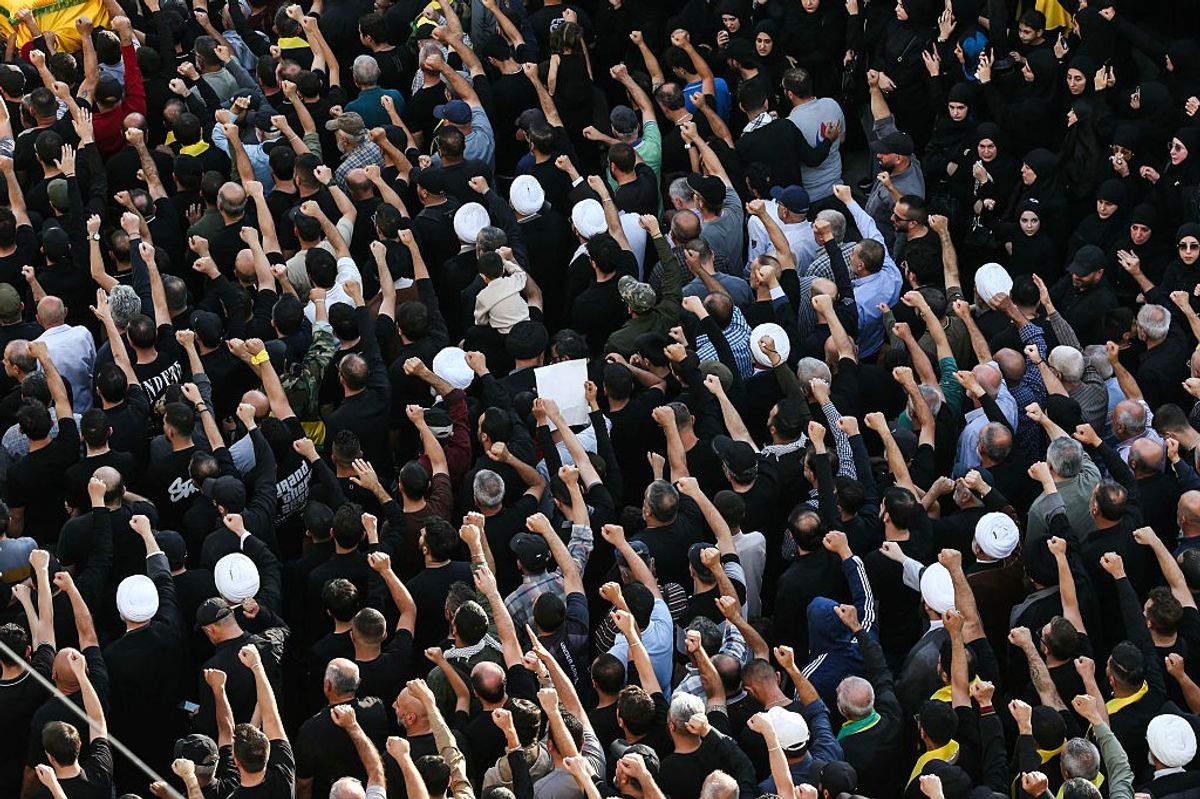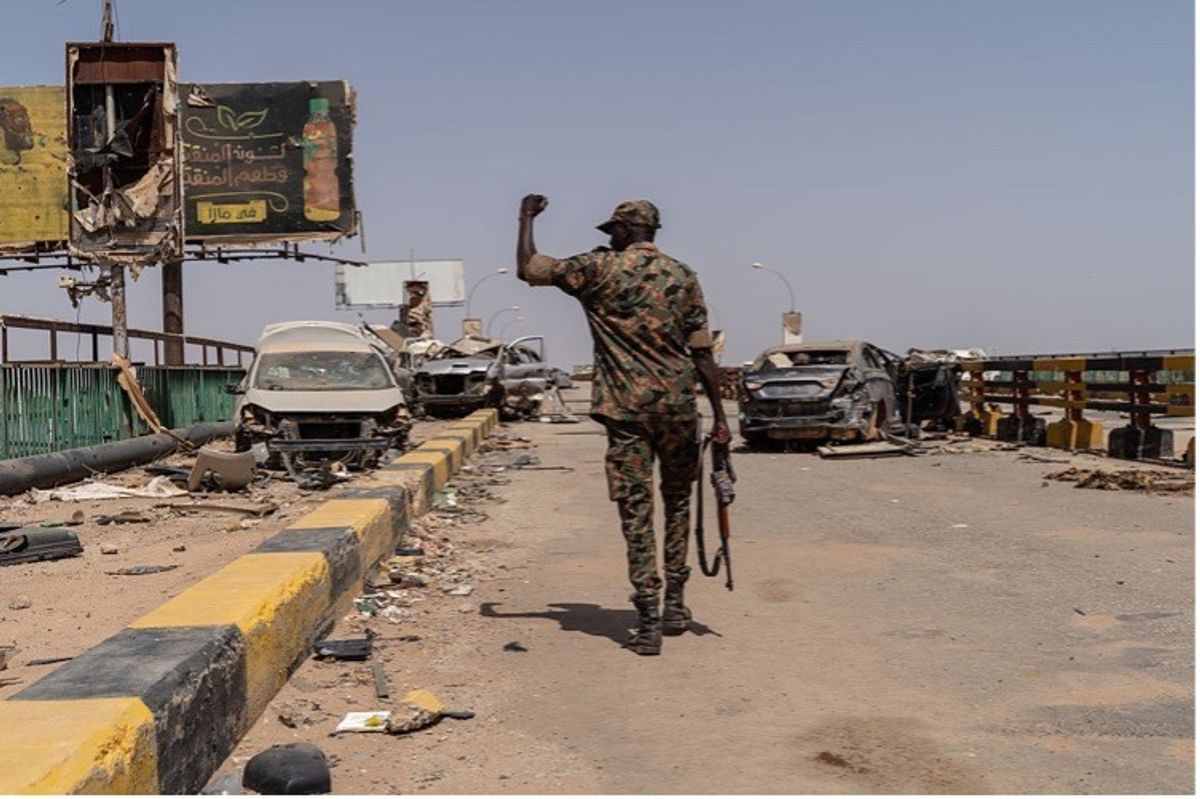OPINION — Embedded in President Trump’s shocking proposal to “own” and develop the Gaza Strip are some uncomfortable truths and even some “common sense,” as he has described it. But then there is this: his plan is in fact ethnic cleansing, unacceptable morally and in clear violation of international law and norms. It almost doesn’t matter that the plan is completely unworkable and unlikely to move forward. There will be unintended consequences of the President of the United States speaking these words out loud, potentially risking peace in the Middle East itself.
The thunder of criticism is completely justified, but ignoring three hard truths that the President has called out is not. First, given the vast devastation in Gaza and the suffering of its Palestinian residents, conditions in Gaza are inhumane, dangerous, and not sustainable for its two million residents. Second, if one just rebuilds Gaza without removing Hamas, the cycle of war and rebuilding will continue; Hamas says that it remains committed to Israel’s destruction. Third, Trump’s unwillingness to restate the long-held U.S. policy supporting a two-state solution accurately reflects that it is, as Dennis Ross recently put it, “little more than a slogan at this point.” This is true at least in part because two-thirds of both Israelis and Palestinians oppose it.
But, but, but…the reason that these truths remain largely unspoken, except by Israel’s Far Right, is that this makes it nearly impossible to accomplish the next steps that are required to bring peace to the region. Namely, Hamas has no reason to negotiate and release the remaining hostages when the end goal of Israel and its guarantor in the peace talks, the United States, is “cleaning out” Gaza. If that isn’t bad enough, then add that Saudi-Israeli normalization isn’t possible in the near term and the grinding status quo, in which mainly Palestinian civilians are the victims, continues. I fear that’s not the end of it. The President’s words alone may have sparked a momentum that is likely to destabilize Israel’s neighbors, Jordan and Egypt, and Israel itself.
Everyone needs a good nightcap. Ours happens to come in the form of a M-F newsletter that provides the best way to unwind while staying up to speed on national security. (And this Nightcap promises no hangover or weight gain.) Sign up today.
A dilemma for Jordan and Egypt
In the face of fierce and swift regional and international condemnation, the President and his advisors have walked back some aspects of the plan since the intitial announcement made during his press conference with an obviously delighted Israeli Prime Minister Benjamin Netanyahu on February 4. Three days later, Trump said he is in no hurry to implement his plan, which in any case would require no U.S. boots on the ground or even any U.S. investment. President Trump doubled down on Sunday saying that no Palestinians would be allowed back, although other advisers and even Netanyahu himself have suggested that removed Palestinians would be allowed back if they disavowed terrorism.
Perhaps these clarifications might provide some relief to Jordan’s King Abdullah, allowing him to kick the can down the road. But combined with dramatic cuts in U.S. assistance to the aid-dependent country, Jordan will emerge more fragile regardless. During his visit to the White House on Tuesday, Abdullah faces the unenviable task of telling President Trump that he is wrong. Trump has said that Jordan–and Egypt– will come around and accept Gazans because “we give them a lot.” Well, the U.S. is giving a lot less now. Some $1.45 billion in annual military and development assistance to Jordan has been frozen or ended, along with the stoppage of U.S. funds to the UN relief organization UNRWA that has supported Palestinian refugees in Jordan for decades. Despite the strains that this will cause, it is unlikely that Abdullah can accept a quid pro quo to accept Gazans in exchange for turning the aid back on; the alternative is worse.
Simply put, accepting Palestinian refugees from Gaza threatens the very existence of Jordan, upending the fragile balance between East Bank Arab tribes and the Palestinians who outnumber them. Such an existential threat is in the living memory of many Jordanians. In 1970, in the wake of the expulsion of Palestinians to Jordan during the 1967 Arab-Israeli war, Yasser Arafat and his Palestinian Liberation Organization attempted to overthrow Abdullah’s father, King Hussein. The country barely survived the ensuing short but bloody civil war, dubbed “Black September,” which drew in neighboring countries and the deployment of two U.S. aircraft carriers, ultimately leading to the forced expulsion of the Palestinian militants into Lebanon.
If pushed and with few options to stop Trump’s plan, Jordan’s strained relations with Israel may erupt. Its security establishment has drawn up contingency plans ranging from declaring a state of war with Israel, to abrogating the Jordan-Israel peace treaty, to declaring a state of emergency.
Similarly, Egyptian President el-Sisi has declared Trump’s plan a threat to Egypt’s national security and on Sunday he called for an emergency Arab League meeting in Cairo to discuss “new and dangerous developments for the Palestinian cause.” Sisi, earlier in Israel’s war against Hamas, described the expulsion of Gazans to Egypt as a “red line” that would force Egypt to suspend its peace treaty with Israel and potentially reignite war between Egypt and Israel. As in the case of Jordan, the influx of Palestinians poses a direct threat to Sisi’s fragile rule; it is universally and vehemently opposed by Egypt’s already deeply discontented public, and some insiders say any acquiescence could prompt a coup.
A “third Intifada” in Israel?
In Israel, Trump’s move is popular among the right wing, seen as the best way to stabilize Netanyahu’s government and allow him greater flexibility in getting all the hostages released, which most Israelis also support. But the biggest winners from Trump’s proposal are Israel’s far right, the extreme nationalists who openly promote the expulsion of all Palestinians from Gaza and the biblically more important West Bank. While Trump’s plan does help Netanyahu keep his far right partners on-side to a point, it also emboldens them to demand more — that annexation of the West Bank must follow. Maybe Trump will answer their prayers; at the same press conference he promised an announcement about the West Bank in four weeks.
Support for the far right‘s goals fits a pattern, and so worse on this score is probably to come, setting the stage for a full-blown third Intifada, or uprising, in Israel itself. In his first Administration, Trump recognized Jerusalem as Israel’s capital, moved the U.S. Embassy there, recognized Israel's annexation of the Golan Heights, and promoted a “peace plan” that would have allowed Israel to annex one-third of the West Bank. So far this term, he has lifted Biden administration sanctions on West Bank settlers who attacked Palestinians, released the shipment of 2,000-pound bombs withheld by the Biden administration, and appointed settler booster Mike Huckabee as Ambassador to Israel. Huckabee has been quoted as saying, “There is no such thing as the West Bank…there are no such things as settlements...there is no such thing as occupation.”
What does this add up to? At a closed-door meeting last week, Israel’s Military Intelligence Chief warned that Trump’s plan could spark violence, including an escalation in the West Bank, specifically during the upcoming holy Muslim month of Ramadan — remarks that drew a harsh reprimand from Israel’s Defense Minister, who has already ordered the military to draw up plans for Palestinians to leave Gaza voluntarily. There is reason to worry; Hamas, backed by Iran, continues to stir militancy in the West Bank, buoyed by the release of some hardened Palestinian militants into the West Bank in exchange for released Israeli hostages from Gaza. This has prompted a weeks-long, Gaza-style anti-terror campaign by Israeli Defense Forces in the West Bank’s Jenin refugee camp and nearby villages that has forced hundreds from their homes and taken the lives of children and women along with armed extremists. And so the cycle continues, but it could very well get worse if Trump gives the Far Right more concessions.
The intersection of technology, defense, space and intelligence is critical to future U.S. national security. Join The Cipher Brief on June 5th and 6th in Austin, Texas for the NatSecEDGE conference. Find out how to get an invitation to this invite-only event at natsecedge.com
Fodder For Terrorist Recruiters
For most Americans, all of this turmoil must seem like much ado about nothing over a few words that probably do sound like fresh, bold thinking, as his team has framed it. Far from it. Trump’s statements have galvanized terrorist groups and places Americans in their crosshairs, as one expert put it. The President’s words have not only inflamed Palestinian anger against the U.S., but also have been quoted in ISIS and other terrorists’ social media campaigns to boost recruiting and inspire lone-wolf attacks. Add this to the spike in terrorist plotting in the U.S. last year by Americans who are self-radicalized, like the New Orleans attacker, and by members of ISIS who infiltrated our borders. Trump’s words will only add fuel to the fire.
This is not the first time that President Trump has broken norms and spoken some truths out loud, but the lesson here is that the ends do not justify any and all means. Trump might succeed, in the best case, in pushing Arab states off the sidelines and forcing them to start actively engaging in solutions for Gaza. If so, this would not be the first time that Trump was right about the goal and won tactical successes through his unorthodox methods. But by saying the quiet part out loud, rather than using pressure and persuasion privately, he risks counterproductive strategic consequences. More likely than not, the unintended consequences of his public ruminations will be significant setbacks to his strategic goal of advancing peace and stability in the Middle East, and a diversion of U.S. attention and resources away from the greater threat posed by China.
The Cipher Brief is committed to publishing a range of perspectives on national security issues submitted by deeply experienced national security professionals. Opinions expressed are those of the author and do not represent the views or opinions of The Cipher Brief.
Have a perspective to share based on your experience in the national security field? Send it to Editor@thecipherbrief.com for publication consideration.
Read more expert-driven national security insights, perspective and analysis in The Cipher Brief















